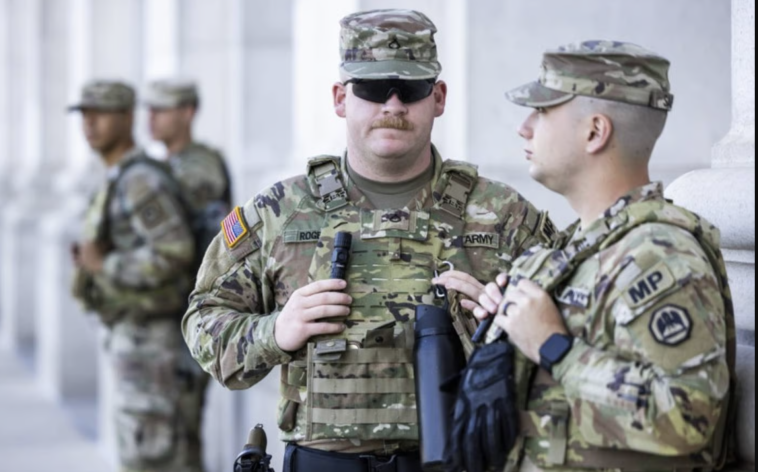Advertisement
Advertisement
A federal appeals court delivered a major legal victory to President Donald Trump on Monday, allowing his administration to move forward with the deployment of National Guard troops to Portland in response to ongoing anti-ICE protests and unrest. In a 2–1 ruling, a panel from the U.S. Court of Appeals for the Ninth Circuit lifted a lower court’s temporary restraining order that had blocked the deployment. The three-judge panel—composed of Trump appointees Ryan Nelson and Bridget Bade, along with a Clinton-era judge—concluded that the president had acted within his legal authority under federal law.
Advertisement
The court determined that Trump’s actions were lawfully carried out under 10 U.S.C. § 12406(3), which allows the federalization of the National Guard when regular forces are deemed insufficient to enforce U.S. law. The ruling overturned an earlier decision from U.S. District Judge Karin Immergut, who had temporarily halted the deployment while warning that the president’s justification risked “pushing the country toward a constitutional crisis.” Her restraining order had been extended last week during further review, but was rendered void by the Ninth Circuit’s ruling.
Advertisement
Advertisement
As a result, the Trump administration was immediately granted authorization to proceed with deploying hundreds of National Guard members to Portland. Prior to the ruling, the administration had already ordered Guard units from California and Texas to prepare for potential deployment as a workaround to Immergut’s initial injunction. Monday’s decision now permits direct participation by the Oregon National Guard.
Advertisement
It was argued before the court that the deployment was necessary to protect federal property, support ICE operations, and ensure the safety of federal personnel amid violent demonstrations that had targeted federal facilities in Portland.
Advertisement
Advertisement
In the majority opinion, Judge Nelson emphasized that the president’s decision was entitled to “substantial deference,” noting that the judiciary should be cautious in second-guessing executive assessments of security threats to federal property and personnel. Judge Bade concurred, stressing that Congress had explicitly granted broad authority to federalize state troops when enforcement of federal law is obstructed.
The dissenting opinion maintained that while presidential authority exists under the statute, sufficient evidence had not been provided to show that conditions in Portland constituted an ongoing “rebellion or obstruction.” The Department of Homeland Security welcomed the decision, noting that it would enable federal officers to perform their duties without fear of violence.
Advertisement
Advertisement
Portland has remained a focal point in federal immigration enforcement, particularly following Trump’s directive to intensify actions against sanctuary cities and anti-ICE demonstrators. The city has witnessed repeated confrontations between protesters and law enforcement, with reports of property damage, arrests, and violent clashes.
Oregon officials, including Governor Tina Kotek and Attorney General Ellen Rosenblum, had sued the administration to block the deployment, calling it a federal overreach into state jurisdiction. However, the Ninth Circuit held that the president’s powers under Title 10 were not subject to state consent when federal authorities determined that local enforcement was unable to protect federal interests or maintain order.
The ruling follows a similar dispute in Chicago, where a separate appellate court upheld a block on Trump’s attempt to deploy Guard troops in Illinois. Supreme Court Justice Amy Coney Barrett has been asked to review that case and has directed Illinois officials to respond.
The Ninth Circuit’s decision marks the first appellate-level victory for Trump’s domestic troop deployment initiative, a policy that has reignited debate over the boundaries of presidential authority and the role of the National Guard in internal security matters. For now, preparations for the Oregon deployment are expected to move forward within days.




3 Comments